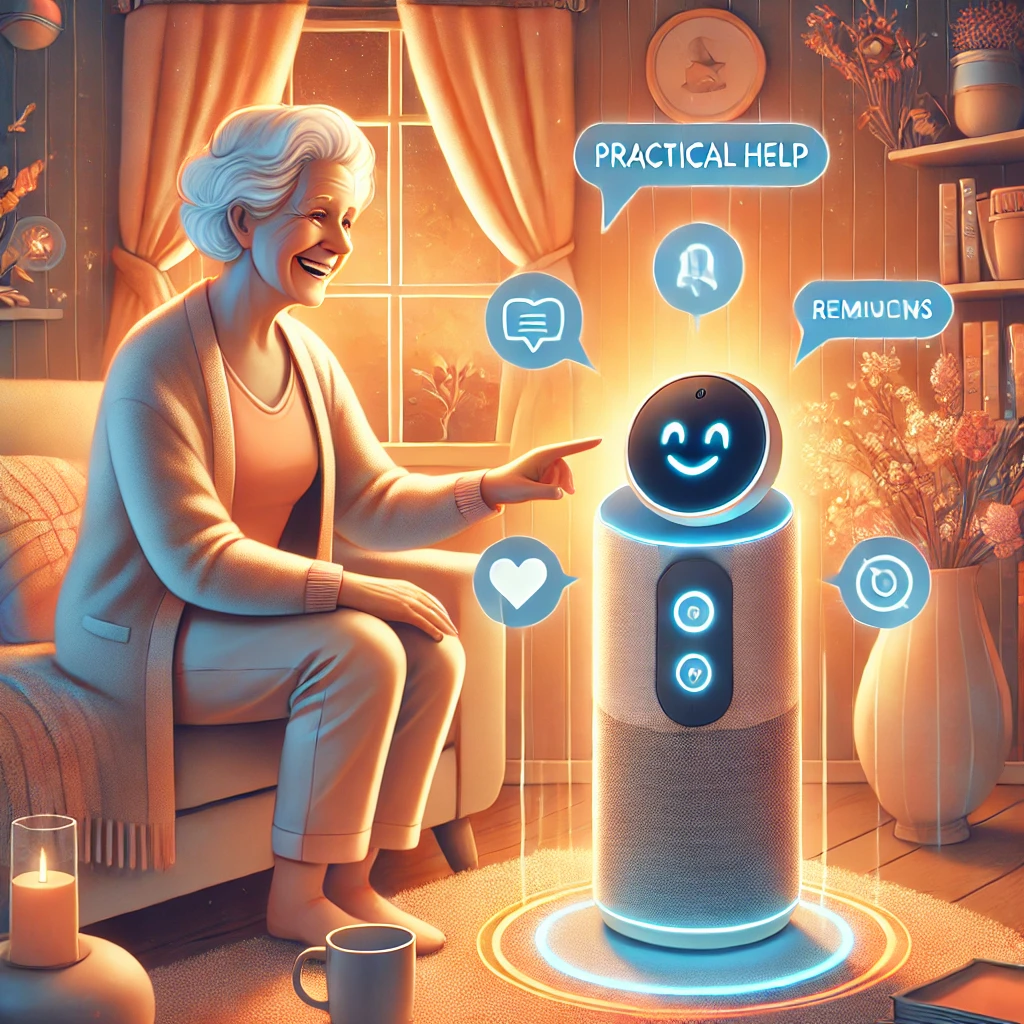AI as a companion: How conversational agents are transforming elderly care
The study underscores the untapped potential of AI conversational agents in addressing the diverse needs of older adults and highlights promising directions for future research and development. One key area is the development of emotionally intelligent AI, enhancing the ability of these agents to understand and respond empathetically to users’ emotions, thereby deepening their role as trusted companions.

Artificial intelligence (AI) technologies are increasingly transforming the way healthcare and social care systems address the needs of vulnerable populations. Among these advancements, AI conversational agents have emerged as a promising solution to enhance the quality of life for older adults living alone, offering both practical support and emotional companionship in a rapidly changing world.
A study titled "Experience of the Use of AI Conversational Agents Among Low-Income Older Adults Living Alone," authored by Kyung Mee Kim and Sook Hyun Kim and published in SAGE Open,14(4), provides deep insights into the instrumental and emotional impacts of these technologies on low-income, older adults in South Korea.
The Challenge of aging and isolation
South Korea faces a demographic crisis, with an aging population growing rapidly. By 2025, over 20% of South Koreans will be classified as older persons. Among them, older adults living alone are particularly vulnerable, facing social isolation, limited mobility, and an increased risk of mental health issues like depression and dementia. This issue is further exacerbated by economic challenges, particularly for low-income individuals who may lack access to conventional support systems. AI conversational agents have emerged as a technological intervention to address these challenges, offering companionship, practical assistance, and enhanced safety.
Aging with dignity: Insights from the study
The study examined the experiences of 18 older adults, aged 65 to 88, who participated in the "Happy Community AI Care" initiative, using AI conversational agents like "Arya." The findings revealed numerous benefits, categorized as instrumental and emotional.
Instrumental benefits included enhanced daily living support, such as managing routine activities like checking the weather, setting alarms, and managing medication schedules, which proved particularly valuable for participants with memory challenges. Cognitive stimulation was another key feature, with programs like "Brain Talk" engaging users in memory games, trivia, and puzzles to help prevent cognitive decline, particularly for those at risk of dementia. Frequent interactions with the AI devices also encouraged clearer communication, improving participants' articulation and boosting their social interactions. Additionally, the AI agents provided easy access to news, weather updates, and health tips, empowering individuals with limited education or technological familiarity to independently access information.
On the emotional front, the AI conversational agents played a vital role in combating loneliness by serving as trusted companions, offering greetings and small conversations that mitigated feelings of isolation, especially during the COVID-19 pandemic. Participants reported emotional comfort through features like music streaming, jokes, and words of encouragement, which fostered happiness and reduced anxiety. The devices also provided a sense of security by enabling direct connection to emergency services, offering peace of mind to users with mobility limitations or chronic illnesses. These findings underscore the transformative potential of AI agents in addressing both practical and emotional needs among older adults living alone.
Challenges and limitations
While the study revealed significant benefits of AI conversational agents, it also highlighted several challenges in their usability and functionality. One of the primary concerns was the limited conversational depth, with participants noting that the AI’s responses were often repetitive or superficial, lacking meaningful interactions or personalization.
Voice recognition barriers posed another issue, as regional dialects and unclear pronunciation reduced the accessibility and effectiveness of the devices for some users. Additionally, participants expressed frustration with inconsistent features, such as fluctuating music volume and limited responses to specific commands, which impacted the overall user experience. These challenges underscore the need for further advancements in AI technology to better address the unique needs and preferences of older adults.
Social and policy implications
The study’s findings carry significant social and policy implications for supporting aging populations through the integration of AI technologies. Enhancing technology design is a key priority, with developers encouraged to improve AI’s conversational capabilities, fostering more engaging and empathetic interactions. Incorporating cultural and regional nuances into voice recognition systems can also make these technologies more accessible to diverse users.
Subsidizing AI devices is another critical step, where governments and social organizations can provide financial assistance or subsidized internet access, ensuring that low-income populations can benefit from these advancements. Additionally, combining AI with human support systems, such as regular check-ins from healthcare workers or ICT managers, can amplify the effectiveness of AI by addressing technical challenges and providing personalized care.
Lastly, educational programs tailored to older adults can help them maximize the benefits of AI devices through workshops and user-friendly tutorials, building confidence and overcoming usability concerns. These measures collectively highlight the importance of a holistic approach to integrating AI into social and healthcare systems for aging populations.
The road ahead
The study underscores the untapped potential of AI conversational agents in addressing the diverse needs of older adults and highlights promising directions for future research and development. One key area is the development of emotionally intelligent AI, enhancing the ability of these agents to understand and respond empathetically to users’ emotions, thereby deepening their role as trusted companions.
Another priority is personalized interactions, where machine learning can be used to tailor AI responses based on individual preferences and habits, creating a more engaging and meaningful user experience. Additionally, the integration of AI conversational agents with IoT-enabled wearable devices offers exciting possibilities for real-time health monitoring, proactive health management, and safety alerts. These advancements could significantly enhance the functionality and impact of AI in elderly care, promoting independence and well-being among older adults.
- FIRST PUBLISHED IN:
- Devdiscourse










